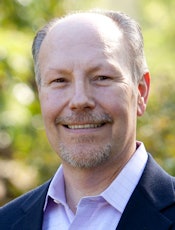
It's no secret today that a healthy body starts with a healthy mouth.
That is abundantly clear when you look at the teeth and gums of many Virginia nursing home residents, the vast majority of whom receive no dental care because Medicaid does not pay for it. As a result, many of these individuals develop infections and other conditions that must be treated in hospitals, at much greater expense to Virginia taxpayers.
 Ted Sherwin, DDS, president, Virginia Dental Association. Image courtesy of the Virginia Dental Association.
Ted Sherwin, DDS, president, Virginia Dental Association. Image courtesy of the Virginia Dental Association.This is not just a problem in the Old Dominion, which has 29,000 nursing home residents, 60% of whom are on Medicaid. Sarah J. Dirks, DDS, a dentist who treats nursing home residents in San Antonio, told the New York Times in 2013 that the lack of daily oral care in nursing facilities is "an epidemic that's almost universally overlooked."
There are three main reasons for this: lack of funding; insufficient awareness of the problem; and, ironically, the fact that losing teeth is not necessarily an inevitable result of age. Let me explain.
Think of older friends and family members you know who still have their own teeth. It's a national trend. The number of people who have lost most or all of their teeth (edentulism) has decreased steadily over the years. Without regular dental care as we age, however, the teeth and gums are increasingly vulnerable to disease. And the overall health consequences of poor oral care can be life-threatening.
There may be a solution that will help relieve pain and discomfort for nursing home residents while reducing hospital stays. A Virginia Dental Association (VDA) task force on this issue recently developed a pilot program that will place oral health coordinators in nursing homes -- provided grants can be secured.
These auxiliary dental workers will identify patients at risk and coordinate care with community providers before emergent treatment is needed. Prevention is the key. Our seniors deserve a chance to live their lives free of pain, dental disease, and other serious problems that can arise when oral health is neglected. Not insignificantly, we believe this project will also show policymakers that disease prevention is less costly than disease treatment.
To gather the data to support this expenditure, the VDA, along with the Virginia Dental Hygienists' Association and the Virginia Health Care Association, which represents the state's nursing homes, conducted a pilot project recently in Richmond. On a single day in June, volunteer dentists and hygienists screened patients throughout the Envoy of Westover Hills nursing home. I was there, and it was heartbreaking to see seniors in need of extensive dental care.
We found loose teeth, poorly fitting dentures, cavities, and infected gums. These conditions make life so difficult and painful that some residents stop socializing and even eating, leading to malnourishment and the assorted debilitating health problems that ensue from that. The fact that some patients have dementia contributes to the challenge, because many resist oral care, clenching their mouths and trying to hit aides.
That is a problem that trained practitioners can manage if there is a will to help these aging citizens have as good a quality of life as possible in their final years. In addition to providing dental care to those in need, the pilot program could identify a way to also save taxpayer dollars through reduced Medicaid expenditures on hospital visits that can result from lack of regular dental care. Virginia now spends $4.1 billion per year, or about 20% of its general fund, on Medicaid, and that figure is growing at 8% a year. Saving money should be a priority for lawmakers across the state. We agree, and the way to reduce the cost on the back end is to invest in more prevention on the front.
It starts in the mouths of Virginia's seniors.
Ted Sherwin, DDS, is the president of the Virginia Dental Association. He can be reached at [email protected]. This is an edited version of an op/ed that first ran in the Suffolk News-Herald. Thanks to the Virginia Dental Association for permission to reprint.
The comments and observations expressed herein do not necessarily reflect the opinions of DrBicuspid.com, nor should they be construed as an endorsement or admonishment of any particular idea, vendor, or organization.



















